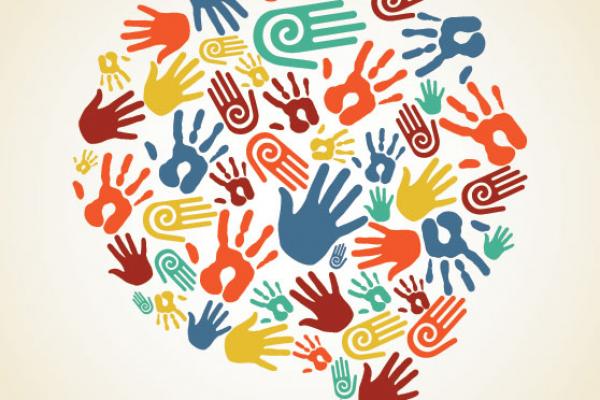Whenever I hear the term Common Good I think of Thomas Paine’s infamous pamphlet Common Sense,which challenged the British government and the royal monarchy, but did not challenge the institution of slavery. As an African-American woman I enter the Common Good conversation cautiously because I know that in our society we have a habit of taking what is good for Western hegemony and making it the standard for everyone else.
As we pursue the Common Good, let us remember what was once considered common and good during earlier points in American history: chattel slavery, indigenous genocide, and institutionalized sexism. To truly come to a Common Good, we need to honor a diversity of voices and challenge our assumptions about what is common and what is good. Our default is to take what is good for our culture, gender, or community and make it the common standard for all. I have experienced being invited into organizations that were aiming to do good in the world, but an expectation existed that I would be silent about my unique concerns as an African woman. I know that denying my reality can never be good for my spiritual, physical, or social well being.
The Common Good does not mean pursuing a society where everyone agrees, but it means pursuing a society in which enough civility exist for people to disagree and be true to their authentic beliefs. The Common Good cannot exist without the notion of justice. We have to caution against a “we are the world” mentality, where any tension or difference is seen as a threat to the Common Good. Are we willing to create a Common Good with people who are different from us? Are we willing to create a Common Good with people who worship differently or don’t worship at all? If we are from a dominant culture, are we willing to interrogate what has been considered “good” in our culture and make adjustments if we realize that our good directly correlates to someone else’s bad?
These are essential questions if we are going to get serious about pursuing the Common Good. In pursuing the Common Good, we must interrogate our current economic system because the Common Good cannot exist when we have a few living in overabundance while others live in constant deprivation. For instance, a commonly held belief in American society is Adam Smith’s notion of an “invisible hand of the market,” which will magically adjust any problems in our economic system; this notion deifies the market while subsequently dehumanizing humanity. When we trust more in the market than in our ability to be co-creators with the divine, we diminish the image of God that has been placed in each of us.
Pursuing the Common Good means “loving your neighbor as yourself” (Mark 12:31). A key component of the Golden Rule is loving yourself. As a woman and an African, I do not want to enter into a “Common Good” that will cause me to sacrifice my culture, while others are allowed to normalize their culture as common and good for all. While reading Jim Wallis’ new work On God’s Side: What Religion Forgets and Politics Hasn’t Learned About Serving the Common Good I was struck by an example given from the Biblical book of Revelation. In Revelation, we read that all tribes are together worshipping God — not as a melting pot where all the tribes have been absorbed into a hegemonic flavorless soup, but as distinctive cultures united under the Spirit. What is especially profound about this passage is that all the tribes worshipped in their unique language and this was pleasing to God.
The Common Good is not about coming together under the guise of false unity where everyone downplays their difference, but it’s about creating safe spaces where difference can exist while we work towards a society that is just for all.
"This blog post is part of The Huffington Post's 'Common Good' series and Sojourners' Common Good Forum, inspired by Jim Wallis' latest book, "On God's Side: What Religion Forgets and Politics Hasn't Learned about Serving the Common Good." Click here to read the rest of the blog posts in the series.
Onleilove Alston is a Faith Based Community Organizer, writer and speaker living in Harlem, and a member of Emerging Voices. Follow Onleilove on Twitter @Wholeness4all.
Image: Social speech bubble, Cienpies Design / Shutterstock.com
Got something to say about what you're reading? We value your feedback!
